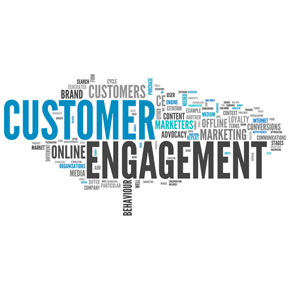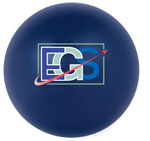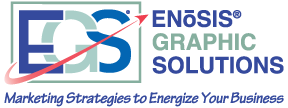 Customer Engagement is the foundation of successful marketing and is especially important during this time of limited face-to-face opportunities to meet with customers.
Customer Engagement is the foundation of successful marketing and is especially important during this time of limited face-to-face opportunities to meet with customers.
Almost overnight, we were forced into a new routine, one that eliminated in-person networking, lunches with clients, business meetings, and working side-by-side with colleagues in our offices. Building and shoring up relationships is more challenging … and more important than ever.
Customer Engagement at its core is the way in which your customers experience the interaction with your company. You want them to rate that interaction as “Excellent.” Customer Engagement, when successful, means achieving client relationships that claim long-term loyalty and support for your business.
The Experience.
Your interaction with clients, whether by phone, email, or in-person, should strive to be both positive, and memorable. Serving the customer – Customer Service – means being involved in the customer’s experience. Consistently excellent customer service plays a key role in helping customers develop an active relationship with your brand. Each member of your staff is responsible for customer service and should be trained to be friendly, helpful, and genuinely enthusiastic when dealing with customers.
The Psychology.
The object of Customer Engagement is to prompt customers to want to be brand ambassadors for your company. Based around the concept of reciprocity, the psychology at work here is: “If someone does something for you, it is natural to want to do something for them in return.” When you provide an excellent customer experience, your customers will want to review your company on social media, or give referrals, or come back to you time after time to purchase your products and services.
The Marketing Tools.
There are several marketing activities that you can use to build successful customer engagement.
- A Rewards Program where you offer small rewards or free points when they join a loyalty program. This type of program encourages repeat customers by increasing the value of the rewards as customers purchase additional products or services.
- Client Gifts for those customers who reach a certain level of annual or life-time purchases. A thank you that can be sent at anytime or focused around holiday gifting.
- Branded Advertising Specialties that carry your brand and are functional and have long life. Items that can sit on a desk or be used in the home act as constant advertising and serve to instill top-of-mind awareness for your brand.
- E-Newsletters provide helpful information for your clients that they can use to grow their own businesses or to improve the quality of their personal lives.
- A dialog using email or phone calls to check-in after a sale to simply ask if everything was satisfactory goes a long way toward building customer rapport and loyalty.
There are other Marketing tools and activities that create productive Customer Engagement, including feedback surveys, social media, contests, and more. Creating a strategy focuses on the journey from first-time customer to brand advocate and is one your customers will remember long after Covid-19.
If you would like to discuss how you can use Customer Engagement to create brand ambassadors, call Noel Choquette at 978-605-2783.
 A Fun Product for Customer Engagement!
A Fun Product for Customer Engagement!
Here’s a fun way to promote customer engagement. Brand this Emoji Stress Reliever with your company logo and send it out to your customers with a message that lets them know you are thinking of them: “This is a stressful time. Just wanted you to know we are here for you.”
